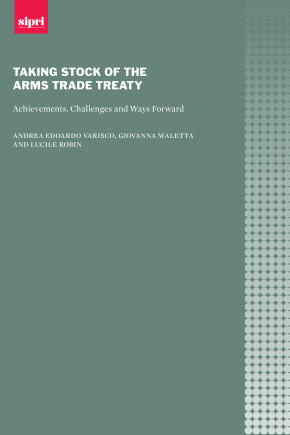Taking Stock of the Arms Trade Treaty: Achievements, Challenges and Ways Forward
Adopted in 2013 and entered into force in December 2014, the Arms Trade Treaty (ATT) is the first legally binding international agreement that aims to establish the highest possible common standards for regulating the international trade in conventional arms, to eradicate their illicit trade and prevent their diversion. Many achievements can be ascribed to its entry into force. At the same time, there remain areas in which the ATT can be improved or strengthened.
This SIPRI Policy Report takes stock of five main aspects of the treaty: its scope, the application of its prohibitions and the risk-assessment criteria, its processes and forums, promotion of its universalization, and support for states’ implementation. The report elaborates a series of policy options to further strengthen these aspects of the treaty and proposes ideas that can be adopted, discussed and refined for further implementation.
1. Introduction
2. Scope
3. Implementation of prohibitions and the risk-assessment criteria
4. Processes and forums
5. Promoting universalization
6. Supporting implementation
7. Conclusions



